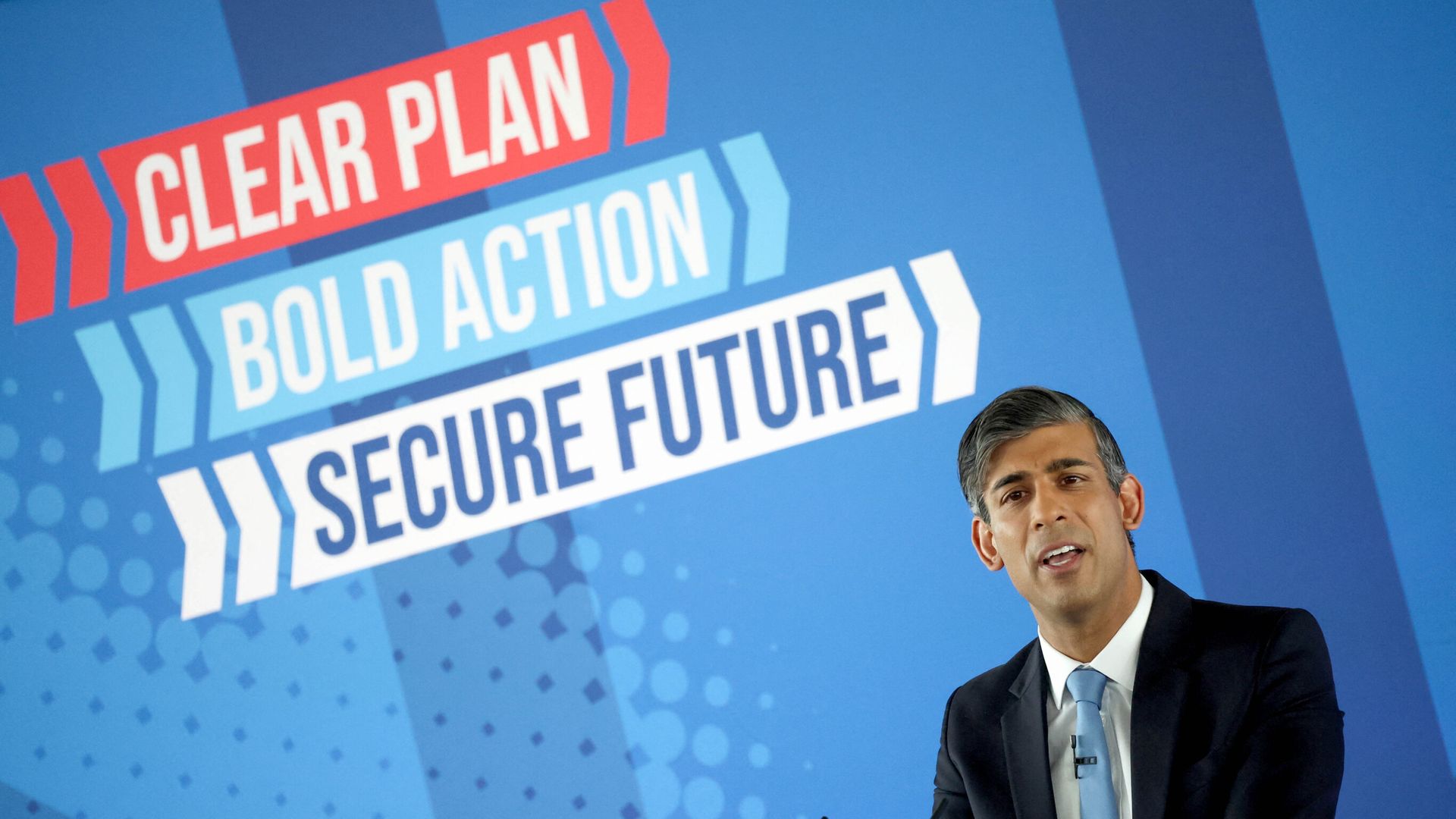Rishi Sunak said he is not “blind to the fact people are frustrated with me” as he unveiled a £17bn package of tax cuts in the Conservative manifesto.
The prime minister admitted he has “not got everything right” as he set out “big ideas” to turn around his faltering campaign.
Having called the election amid a 20-point poll deficit, things became worse for Mr Sunak when he left an international D-day event early last week – sparking such a furore he was forced quash rumours he considered resigning.
Election latest: Tory manifesto launch
Mr Sunak’s headline offering to voters includes a further 2p cut to national insurance and the so-called “triple lock plus” for pensioners – which will create a new “age-related” tax-free allowance.
He also wants to cut taxes to support the self-employed by abolishing the main rate of self-employed national insurance entirely by the end of the parliament.
In a bid to boost home ownership, he has also set a new target of 1.6 million new homes, promised to abolish stamp duty on properties up to a value of £425,000 for first-time buyers, capital gains tax relief for landlords who sell to their existing tenants and a new Help to Buy scheme.
For young people, the manifesto includes previously announced plans for mandatory national service, banning the use of mobile phones during the school day and scrapping A-Levels in place of a new system, the Advanced British Standard.
“Now is the time for bold action, not the uncertain Keir Starmer as prime minister”, Mr Sunak said.
Mr Sunak said he is not “blind to the fact that people are frustrated with our party and frustrated with me” and admitted “we have not got everything right”.
But he said the Conservatives are the only party “with the big ideas to make our country a better place to live”.
“We will keep cutting taxes in the coming years meaning by 2027 we will have halved national insurance to 6%, that is a tax cut my friends of £1300 to the average worker,” Mr Sunak said.
In his launch speech, the prime minister also committed to “halve migration as we have halved inflation and then reduce it every single year”.
Other policies include:
• Moving the threshold to pay high income child benefit charge for single-earner families to £120,000, up from £60,000 currently
• A guarantee not to raise income tax, national insurance or VAT
• A workplace pension guarantee to not introduce any new taxes on pensions or increase existing ones for the whole of the next parliament
• A commitment not to change the number of council tax bands, undertake a council tax revaluation or cut council tax discounts
• An ambition to abolish national insurance when financially responsible to do so
• A “binding, legal cap” on work and family visas which would “fall every year of the next parliament and cannot be breached”.
• A requirement for migrants to undergo a health check in advance of coming to the UK – with the prospect of paying a higher rate of the immigration health surcharge or forcing them to purchase insurance if they are “likely to be a burden on the NHS”.
In total, the package cuts would amount to a £17.2 billion annual cost to the Exchequer by 2029-30.
The Tories say they will pay for the reductions in tax by reforming the welfare system to make savings of about £12bn.
The other £5bn will come from cutting the civil service and saving on consultancy.
The Tories reduced employees’ national insurance from 10% to 8% at the March budget, following a similar cut in autumn 2023, at an annual cost of almost £10 billion by 2028/29.
Earlier, Sir Keir Starmer said the money was not there to pay for Mr Sunak’s pledges, warning it was a “recipe for five more years of chaos” under the Conservatives.
Asked if the manifesto was a “last chance saloon”, Mr Sunak claimed he took the job as prime minister under difficult circumstances but the country had “turned a corner” and “it is right to talk about the future”.




